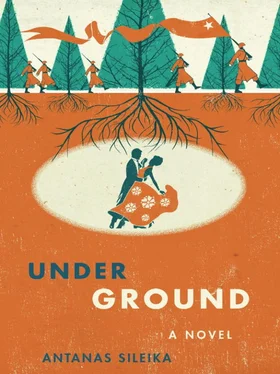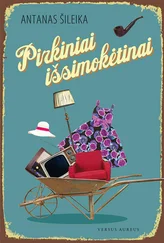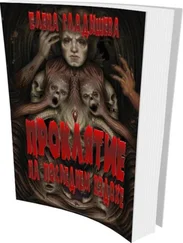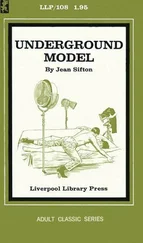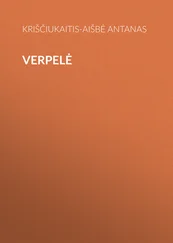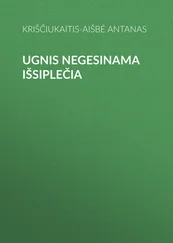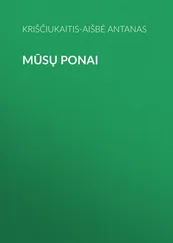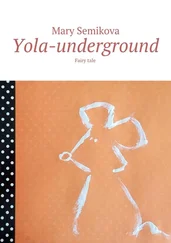The Petronis family farm bordered the sand dune, on the side opposite the town of Rumsiskes, and although crops would grow grudgingly on their property, the earth was not particularly fertile, so the farmer and his wife encouraged their three sons to study and make other lives for themselves. The farm itself could be the dowry of their sister, the youngest. But all their plans were muddled by the war. None of the boys, not even Lukas, the eldest, had finished his studies. He was a lithe optimist who refused to be discouraged by this setback, although it was trying at times to be home again, where his parents expected so much of him and his younger brothers occasionally resented his care. The second son, Vincentas, had also been sent back from the seminary for his own safety, to wait out the passing of the front.
The Petronis family had thought of withdrawing behind the German lines in the summer of 1944, but what would life be like in Germany? They would be refugee foreigners in a land under attack from two sides. Besides, staying might not be all that bad even if the Reds did come back. What did a farmer have to fear? Petronis owned a modest fifty acres of land, and a farmer was only designated an enemy of the people, a “bourgeois,” at seventy-five acres. He was safe as long as the category was not enlarged to include him.
He was uneasy about that. The Reds had coined a new term: “debourgeoisation,” an excellent bureaucratic word for expropriation. A tailor could not have thought of a better term, because it was like a bolt of cloth that could be cut to fit any size. During the first Red occupation it had been applied to large landowners, policemen, government ministers, deputy ministers, assistant deputy ministers, people with relatives abroad, anti-government activists, school principals, and even the one-legged jazz saxophonist in the Metropolis Café in Kaunas, along with his wife, a hairstylist. One could not be sure the category wouldn’t be adjusted again.
It was the end of July and very hot, but the windows were shuttered, an oil lamp on the table casting poor light and adding to the heat. The family was eating lunch at a long table. Above the thatched roof of the wooden farmhouse, German and Russian mortars crossed paths. Occasionally the distant sound of tank rounds was heard, as well as automatic fire. There was nothing to do but wait it out, so Petronis senior dipped his spoon into his bowl of beet greens soup and the others followed.
Then they waited throughout the day, old man Petronis anxious in case the shelling lasted so long it kept him from milking his cows. Late that afternoon, the firing moved west.
About an hour before sunset, the Jewish Pine Forest dune began to move, with wave upon wave of Red Army soldiers coming over the hill. Hundreds of them came on, their faces tired and dirty, their uniforms torn.
They were hungry because the front lines travelled without field kitchens, so the men had to live off the land. Father Petronis sent his daughter inside and the three brothers brought out a table on which they cut up slices of bread and laid out pieces of sausage as well as poured out all the milk they had into jugs. About twenty of the soldiers ate there while others fanned out to neighbouring farms, but they did not stay long because they had to rejoin their units before nightfall.
The first day had ended fairly well. The soldiers were just young men after all, tired and hungry. Maybe they were afraid too. Maybe things would turn out all right.
The German lines stiffened near the East Prussian border, so the lack of Red Army field kitchens became a burden to the local farmers, especially those who lived near the main roads and whose farms were easily accessible. The Red Army rode about in Studebakers, Lend-Lease gifts from the Americans.
Red soldiers believed that food, at the very least, was their due. Declaring themselves liberators and guests, they could show up at any time in groups of four or six. If food was a soldier’s due, liquor was his reward, and these same soldiers appeared with farm goods, guns, grenades, saddles and even horses, which they traded happily for buckets of home-distilled samagonas . A farmer’s joy at a good trade could be marred, though, when another farmer from a few kilometres away recognized his saddle or his horse and demanded its return.
Once drunk, the soldiers reflected on the unfairness of their own poverty and that of their families back on the collective farms, and began to steal from the farmers at night. The barking of the farm dogs did not deter them; the soldiers shot barking dogs. They emptied storerooms of food and took farm implements. The people of the countryside no longer wore wristwatches. It was also dangerous to be thoroughly cleaned out by the thieves, because subsequent thieves became angry if they wasted a walk up a farm lane only to find there was nothing left to take.
More worrisome than theft was the Red Army’s hunger for labour and recruits. Trenches needed to be dug in case the German army counterattacked. And the front was a maw that devoured young men who were thrown at it without arms or training. Since Lithuania had been occupied by the Reds before the German occupation, Lithuanians were deemed Soviet citizens, whose duty it was to fight the Germans. Any who chose not to fight were deemed fascists themselves.
And so the Petronis boys, Lukas, Vincentas and Algis, went to their uncle’s farm a dozen kilometres away, where the locals did not know them well, and helped to bring in the August rye. The young Petronis men passed for labourers, and whenever Russian cars or press gangs appeared, the women warned them and they hid in the forest or in a pit under the barn floor.
Lukas and Vincentas found out that university students and seminarians were being given draft exemptions, and so they left their younger brother behind and made their way home. They packed bags with food and clothes to go to Kaunas to have their passports stamped with military exemptions so they could continue their studies.
The Lithuanian capital had been moved to Vilnius, so many of the buildings in Kaunas were abandoned and some were in ruins. Even so, the streets were full of soldiers and trucks as well as country folk, often women in head scarves, scavenging for lamp oil or aspirin or any other items that were no longer available in the countryside. The Jewish houses were empty and long since sacked.
Lukas was relieved to be back in Kaunas, relieved to get back to his life. He wanted to get on with things now, to live in a city, to read books and talk in cafés, to see movies and listen to the radio. Above all, he was tired of armies and wars, which had already eaten up enough of his twenty-three years. He was slight and quick, and he liked to laugh. He had been an excellent shot as a hunter and a very good explorer of the Jewish Pine Forest as a boy, but he intended to study literature and teach in a high school, or even the university if he was lucky. Vincentas was not that different from him, and they looked something alike, although Vincentas wore glasses. But the younger brother was otherworldly; he adored vestments and incense and had practically taught himself Latin before he even started high school. Only their brother Algis preferred life in the countryside.
Having left Vincentas at the nearby seminary, Lukas went to the main office of the university, which hummed with phone calls, secretaries carrying sheaves of papers, and some of the younger professors, huddled in committees, discussing their various tasks to get the university up and running in some fashion for the fall semester. Kuolys, the long-haired Latin professor who had terrorized Lukas in his first year, now looked up, smiled and came over.
“Just in time,” said Kuolys. “Do you have your exemption?”
Читать дальше
